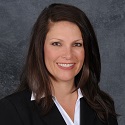BI-ISIG Members in the Spotlight
RISA NAKASE-RICHARDSON, PHD, FACRM
 Dr. Risa Nakase-Richardson is a Professor and Director of the Sleep Medicine Research in the Division of Pulmonary and Sleep Medicine of the Morsani College of Medicine at the University of South Florida (USF) in Tampa. She is also a Clinical Investigator and Research Neuropsychologist in the Polytrauma Rehabilitation Program at the James A. Haley VAMC in Tampa, Florida. Dr. Nakase-Richardson serves as a Research and Clinical Supervisor to fellows and residents in the formal training programs at the James A. Haley Veterans Hospital (Neuropsychology, Rehabilitation Psychology, Physiatry) and Sleep Medicine Fellowship in the Division of Pulmonary and Sleep Medicine at USF.
Dr. Risa Nakase-Richardson is a Professor and Director of the Sleep Medicine Research in the Division of Pulmonary and Sleep Medicine of the Morsani College of Medicine at the University of South Florida (USF) in Tampa. She is also a Clinical Investigator and Research Neuropsychologist in the Polytrauma Rehabilitation Program at the James A. Haley VAMC in Tampa, Florida. Dr. Nakase-Richardson serves as a Research and Clinical Supervisor to fellows and residents in the formal training programs at the James A. Haley Veterans Hospital (Neuropsychology, Rehabilitation Psychology, Physiatry) and Sleep Medicine Fellowship in the Division of Pulmonary and Sleep Medicine at USF.
Dr. Nakase-Richardson obtained both a M.A. and Ph.D. in Clinical Psychology from the Department of Psychology at West Virginia University. During her doctoral studies, she spent a year as a Behavioral Medicine/Neuropsychology Resident in the Department of Psychiatry & Human Behavior at the University of Mississippi Medical Center & Jackson VAMC under the supervision of Thomas Payne, Ph.D., Phillip Godding, Ph.D., Bradley Burton, Ph.D., and Mark Sherer, Ph.D., ABPP/Cn. Following graduation, she began her neuropsychology fellowship at the Methodist Rehabilitation Center and Department of Neurology at the University of Mississippi Medical Center under the supervision of Mark Sherer, Ph.D. and Edward Manning, Ph.D. Following completion of her fellowship, she began working at Methodist Rehabilitation Center in Jackson, Mississippi serving in roles such as Assistant Professor, Director of Clinical Training, Assistant Director, Clinical Neuropsychologist, Scientist, and Interim Department Director. Given the paucity of neuropsychologists in the rural Mississippi, she was recruited by a Neurology Practice to work on weekends in Hattiesburg, MS to expand neuropsychological services to other parts of the state. In 2008, she began her employment with the James A. Haley VAMC and later received a dual appointment to work at USF in Tampa, FL.
Early in her career, Dr. Nakase-Richardson worked on several federally funded grants, starting with the Traumatic Brain Injury Model Systems (TBIMS) of Mississippi. Her first grant as Principal Investigator was from the National Academy of Neuropsychology. Since that time, she has served in various capacities including Principal Investigator, Co-Investigator, and Site Principal Investigator on a diverse portfolio of federally funded grants including the National Institute on Disability, Independent Living, and Rehabilitation Research (NIDILRR), Department of Veterans Affairs (Rehabilitation Research and Development (VA RR&D; Health Services Research and Development), Department of Defense (DOD), Veterans Brain Injury Center (DVBIC), National Institute of Nursing Research (NINR), and Patient Centered Outcomes Research Institute (PCORI). She is nationally and internationally recognized for her work in the areas of disorders of consciousness, sleep, and improving psychological and rehabilitation outcomes among persons with TBI.
Dr. Nakase-Richardson has maintained active participation in ACRM and the BI-ISIG for more than 11 years. She has been serving as the Chair of the Disorders of Consciousness Task Force within the BI-ISIG since 2013, and Chair of the Military and Veterans Affairs Networking Group since 2015. Recently, she was elected as a Member-at-Large within the Board of Governors and serves as a member of the Partnership Committee of ACRM. She previously served as the Treasurer of the BI-ISIG Executive Committee. Outside of ACRM, she has held and continues to hold several leadership roles. She holds several leadership positions within the TBIMS National Committee, such as Vice Chair of their Planning Committee, Chair of the Disorders of Consciousness (DOC) Special Interest Group (SIG), and Co-chair of the Health Services and Implementation Science SIG and Sleep-Wake Fatigue SIG. Within the VA Polytrauma System of Care, she serves as a liaison between NIDILRR and the VA TBIMS, Chair of the National VA Polytrauma Research Committee, and member of the Polytrauma Research Committee at the James A. Haley VA. She has also served on the Guideline Development Committee on Diagnosis, Prognosis, and Treatment of DOC through the American Academy of Neurology, and the Research Committee of the Chronic Effects of Neurotrauma Consortium (CENC) funded by the Department of Defense and Veterans Affairs.
Dr. Nakase-Richardson has authored or co-authored nearly 80 peer-reviewed publications, 7 book chapters, and several professional articles, research letters and commentaries. She has served as Editor of Invited Special Issues in Peer-Reviewed journals (2013, 2016, 2017) and Associate Editor for Military Neuropsychology in a new Encyclopedia of Neuropsychology. She has tried to extend the impact of her research through knowledge translation activities including the development of TBI-related fact sheets, patient and family newsletters, and special issues in clinician-oriented magazines (Brain Injury Professional, 2018) to direct information to stakeholders who are key in the adoption of research findings. She has been invited to give lectures all over the continental U.S. and has given over 200 presentations at national and international conferences. For her significant contributions to the field of traumatic brain injury and rehabilitation, she has received numerous honors and awards. Within ACRM, she was the first recipient of the Dr. Joshua B. Cantor Scholar Award for her research contributions in the areas of investigating sleep disturbances after TBI. She is a Fellow of ACRM and NAN and has been awarded the Mitchell Rosenthal Award for Best Scientific TBIMS Publication in 2013 and 2019. She has mentored six ACRM early career professionals who have received research poster awards, such as the Military and Veteran Networking Group Best Poster Award and the BI-ISIG Early Career Award.
Dr. Nakase-Richardson credits her success to the loving support of her husband Gordon and two children, Wyatt and Cody. She is grateful to the ACRM members who have generously given their time to mentor her through her early and mid-career phases of professional development. To thank them, she is paying it forward.
CARLOS MARQUEZ DE LA PLATA, PHD
 Dr. Marquez de la Plata is a clinical neuropsychologist and the Director of the Neuropsychology & Counseling Center in Dallas, Texas since 2008. He obtained his doctorate degree in clinical psychology from the University of Texas Southwestern Medical Center in 2005, where he currently holds a faculty appointment within the Department of Psychiatry. His research interests lie in identifying markers of functional and cognitive recovery after acquired brain injuries, and evidence based practice-related implementation science. Along those lines, he is particularly interested in diversity issues in rehabilitation, and most importantly how to ameliorate outcome disparities through person-centered approaches.
Dr. Marquez de la Plata is a clinical neuropsychologist and the Director of the Neuropsychology & Counseling Center in Dallas, Texas since 2008. He obtained his doctorate degree in clinical psychology from the University of Texas Southwestern Medical Center in 2005, where he currently holds a faculty appointment within the Department of Psychiatry. His research interests lie in identifying markers of functional and cognitive recovery after acquired brain injuries, and evidence based practice-related implementation science. Along those lines, he is particularly interested in diversity issues in rehabilitation, and most importantly how to ameliorate outcome disparities through person-centered approaches.
Early in Dr. Marquez de la Plata’s research career, he received a NIH-funded K23 Career Development Award, where he aimed to develop structural and functional neuroimaging biomarkers, as well as develop neurorestorative interventions for TBI. Following completion of his grant, he joined Pate Rehabilitation in Dallas, Texas as their Assistant Director of Rehabilitation Research. For this role, he coordinated multidisciplinary rehabilitation treatment efforts, educated treatment teams on evidence-based approaches, coordinated multidisciplinary and inter-institutional research studies, and was in charge of analyzing and presenting quality outcomes for CARF accreditation. In 2015, Dr. Marquez de la Plata became the Director of Rehabilitation Research at Pate Rehabilitation, and directed both the pre-doctoral and postdoctoral training programs in neuropsychology. He served many roles in this position, including developing and maintaining the Therapeutic Intervention Protocol Sharing (TIPS) therapist/student research program. Recently, he resigned from Pate Rehabilitation to work full-time in his private practice.
Dr. Marquez de la Plata has years of experience leading interdisciplinary teams treating acquired brain injuries in a post-acute setting. His clinical efforts are guided by an interest in developing evidence based rehabilitation treatment protocols, including interventions for increasing family involvement in goal-setting within a person-centered approach to community reintegration. He is dedicated to reducing ethnic disparities in acute and rehabilitation care following TBI, addressing cultural humility in rehabilitation, and training clinicians on becoming culturally-competent providers of brain injury rehabilitation.
Dr. Marquez de la Plata has over 30 peer-reviewed papers related to brain injury and dementia, and numerous presentations at national and international conferences to clinicians, researchers, and other stakeholders. In addition to being a member of the BI-ISIG, he is an active member in the ACRM International Networking Group (ING).
RON SEEL, PHD, FACRM
 Dr. Ronald Seel is Professor and Executive Director of the Center for Rehabilitation Science and Engineering (CERSE) at the Virginia Commonwealth University (VCU) in Richmond, VA. CERSE leads or consults on 70 grants with over $90M in total awards and over $32M in annual awards. CERSE led center grants include the DOD/DVA $62.5M Chronic Effects of Neurotrauma Consortium, NIDILRR RRTC on Employment for Persons with Physical Disabilities, and the NIDILRR TBI Model Systems. He facilitates collaborations with over 100 researchers across McGuire VAMC, Sheltering Arms Institute, and VCU including 6 schools/colleges, 5 centers/institutes, and 19 departments.
Dr. Ronald Seel is Professor and Executive Director of the Center for Rehabilitation Science and Engineering (CERSE) at the Virginia Commonwealth University (VCU) in Richmond, VA. CERSE leads or consults on 70 grants with over $90M in total awards and over $32M in annual awards. CERSE led center grants include the DOD/DVA $62.5M Chronic Effects of Neurotrauma Consortium, NIDILRR RRTC on Employment for Persons with Physical Disabilities, and the NIDILRR TBI Model Systems. He facilitates collaborations with over 100 researchers across McGuire VAMC, Sheltering Arms Institute, and VCU including 6 schools/colleges, 5 centers/institutes, and 19 departments.
Dr. Seel earned a BA in Government from the College of William and Mary in 1983. He initially worked on a U.S. presidential campaign and as a project manager for the National Sierra Club. He then began a career in banking operations and technology, rising in 5 years to Assistant Vice-President of Technology Change Design and Implementation at NationsBank Corporation. He went to graduate school at VCU and earned a PhD in Counseling Psychology with a subspecialty in adult education and organizational development. Dr. Seel was competitively awarded pre- and post-doctoral fellowships in Rehabilitation and Neuropsychology at VCU/Medical College of Virginia under the mentorship of Jeff Kreutzer, PhD and David Cifu, MD. He chose a career in rehabilitation research over organizational development consulting.
Following his post-doctoral fellowship, Dr. Seel became an Assistant Professor in the VCU Department of PM&R and served as Associate Director of Research for the Defense and Veterans Brain Injury Center and Executive Director of the Southeastern Parkinson’s Disease Research Education and Clinical Center at the McGuire VAMC. He then was the Director of Brain Injury Research at Shepherd Center in Atlanta, GA. Dr. Seel said, “It was a privilege to work at Shepherd Center and be part of an organization so completely devoted to improving the lives of people with disability.” Dr. Seel has served as Principal Investigator or Co-Investigator on 17 federally funded grants and has co-authored over 60 peer-reviewed publications. His primary research interests are evidence-based practice, clinical decision support, and self-directed approaches to improve the health and independence of people with disabilities.
Dr. Seel has been active in ACRM and the BI-ISIG since 2002. He chairs the ACRM Evidence and Practice Committee and leads the ACRM-CARF International-Paradigm Outcomes Initiative, a funded academic-accreditor-industry partnership to generate clinical practice guidelines. He formerly was elected chair of the BI-ISIG, elected member of the ACRM Board of Governors, and Chair of the BI-ISIG Disorders of Consciousness and Mild TBI Task Forces. Dr. Seel’s contributions to ACRM and the field of rehabilitation have been recognized by several honors including the 2010 Deborah Wilkerson Early Career Award, 2012 Distinguished Member Award and 2013 ACRM Fellow. Dr. Seel said, “ACRM and particularly the BI-ISIG has been one of the most personally and professionally rewarding experiences of my professional career. I feel fortunate to work and have friendships with such a highly competent, dedicated, and fun group of colleagues.”










